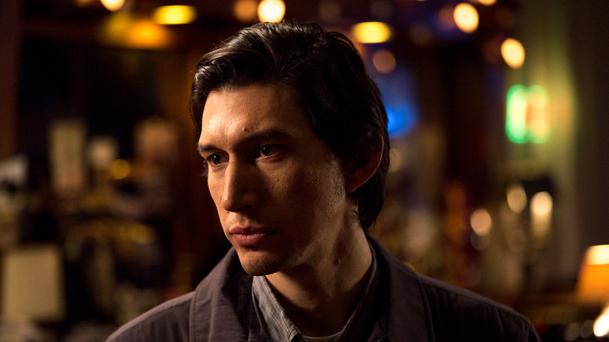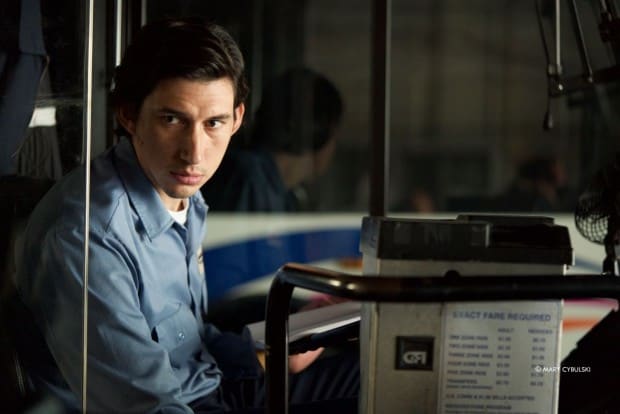Jim Jarmusch’s “Paterson” is the second film at this year’s festival with poetry as its central theme, though unlike Alejandro Jodorowsky’s surrealist extravaganza “Endless Poetry”, “Paterson” deals in the so-called poetry of the everyday and the ordinary, or prosaic poetry – and I spent the entire film unable to figure out if Jarmush was pulling the audience’s legs reciting and rehashing and superimposing on-screen verses of the sort “Today I washed my feet. Remains to be seen if tomorrow will bring toe-nail clipping”. Not literally, but almost.
Still on a high from yesterday’s jubilant South American mad fest, today the tale of small-town New Jersey haiku-weaving bus driver Paterson (Adam Driver) fell painfully short of the exhilaration that real filmed poetry can arouse. Paterson is mild-mannered, old-fashioned, and slightly dim-wit looking (his naiveté has shades of Forrest Gump). He is also exasperatingly hyper polite, thanking his wife Laura (Golshifteh Farahani) every other sentence for just about anything and everything. The wacky, pushier, excessively cheerful Laura is an over-the-top, sickly sweet (at some point the gushing ‘honey’, ‘babe’, et al. she calls her husband start to make you want to scratch her eyes out) cupcake-baking housewife with a clinical obsession for black and white patterns (she reminded me of the wacky chef played by Arsinée Khanjian in “Felicia’s Journey”). Laura encourages, or rather pushes, Paterson to publish his poems or at least make a copy of his notebook with the infamous verses. Being a pushover, Paterson timidly agrees, as he does to almost everything Laura proposes, but not before their bulldog Marvin, arguably the most sympathetic character in the film, manages to chew the notebook.
This is a bizarre marriage, something out of the 1950’s with ‘honey, darling, babe’ flying all over the place, hardly a realistic, modern-day sentence uttered by either spouse and zero marital conflict in sight. Similarly to Jarmusch’s take on the poem extracts recited, I was hoping and looking for unequivocal indices of parody, thinking that Jarmusch could not possibly believe that the poetry he was reciting to us was but phrases strung together by a sentimental simpleton or that the marriage was anything but the bringing together of two nearly delusional, albeit endearing, losers. But I came out of the screening uncertain about whether the film-maker fell for his own trick or I fell for his.
While “Paterson”, similarly to Jodorowsky’s masterpiece, abounds with references to real-life poets, where “Endless Poetry” was an extravagant pageant of vitality, the tone of “Paterson” in one of understatement and humbleness. It is essentially about the poetry of being a small-time loser – it is a quite safe bet that Paterson will never be a published poet (nor does he seem to want to – quite an un-American attitude), any more than Laura will become a country music star. How prosaic reality crushes little people’s dreams and what, if any, residual lyrical consolation can be found in this same prosaic reality is the main theme here, and it is a very valid artistic preoccupation, especially under-represented in American cinema. This central idea is fairly efficiently conveyed but where the film fails is in the total lack of emotional response it provokes and its ineptitude at instilling so much as a tinge of poetic mood beyond the repetitive musings in front of an autumnal waterfall.


